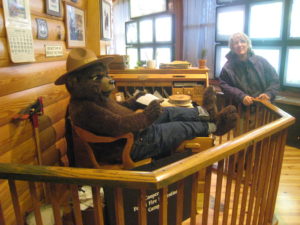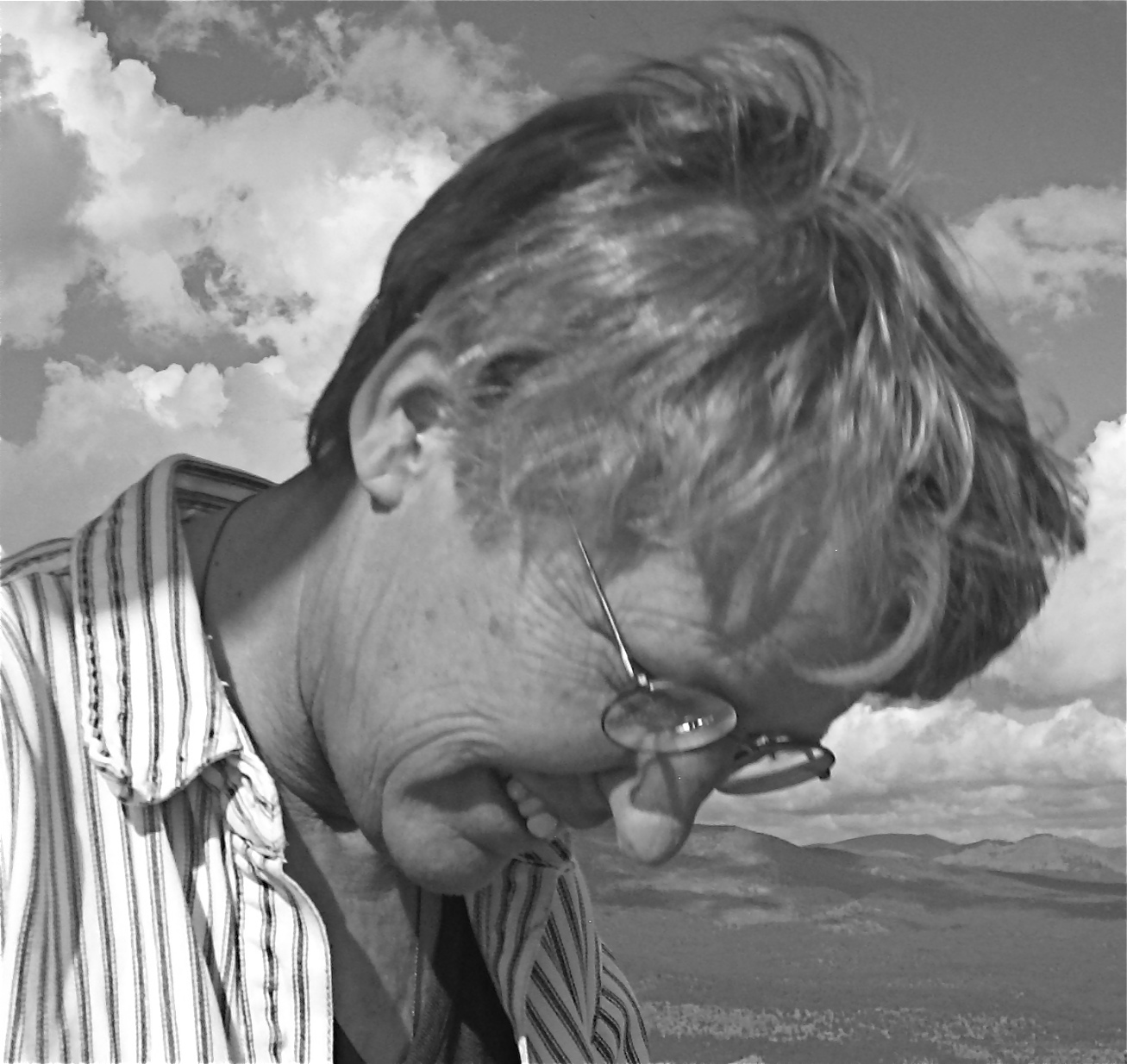
The driveway to the front door of the cabin where I live is a steep 50-yard lunge off a dirt road. Much of the year I goose my old truck up it without incident, but sometimes the travel of the gravel results in wavelike potholes that require a head start to gun through. Last week with gritted teeth I clutched the steering wheel of my old truck and felt the eyes of my passenger get wide as groceries bounced around the cab and tires spun a tower of dust cloud into the afternoon air.
After unloading, I checked under the hood and discovered the battery had moved because a J-bolt had gone missing. Not a big job to replace it and cinch down the nut. Pleasant, really, to do such small tinkering and reaching with a wrench gave me an unexpected surprise. I suddenly felt through my bones quite a nice memory of my father who has been gone so very many decades. I could feel him standing nearby again, just like in the mid-’70s when I was leaning under the hood of my ’64 Volvo to bleed the brake master cylinder, or was I replacing the gasket on the mechanical fuel pump that had such a pretty glass inspection bowl? Maybe I was scraping metal to add goo and gasket. My father who had fixed cars his entire life watched without comment, willing to depress a pedal to help. He didn’t interfere or make suggestions, he just watched his daughter, a gal in her early ’20s trying to get her car ready to go up a mountain to be on a fire crew.
I’d asked him the night before what he thought of me wanting to fight fire. Was it a good idea? I’d already ridden my 10-speed to my old high school to ask a teacher I knew who patrolled in the woods in a green truck most summers up by Payson. That teacher paused his game of handball to look me over and say, well, yes, he’d heard they were hiring women now and he guessed as I was handy with hiking, I’d keep up alright. If I really wanted to do it, he guessed I could do it and it would certainly be interesting for all. So even without my father’s opinion I’d pretty much decided to give the job a try.
My father’s response? A mix of chuckle and wry smile. He worked regularly in outdoor Arizona building gaging stations and tracking stream flow as an engineer with the U.S. Geological Survey. I think he probably had a pretty good idea what I might find out there, both what kind of country waited along dirt roads and what quirks of character I might find in the company of firefighting fellows. I’ve always wondered what he really thought but didn’t say. And as it turned out, we never got around to swapping stories of working outdoors for the government, as he passed away not long after my first season.
I was not actually that bold in pursuing Forest Service work. I was studying for a degree in journalism from ASU after all. But one spring a friend mentioned she’d seen an ad in the newspaper for jobs on the Kaibab National Forest. We drove all the way from Phoenix to Williams to get more information and maybe apply, but then I got shy at the last minute and stayed in the car while she bravely went into the office. I studied the dashboard, eager but confused.
The next year my friend Bruce Grubbs, who had multiple fire seasons under his belt, confirmed the plausibility of women working and so I applied for fire lookout. Early in June when the Forest Service called me at the Camelback Inn where I was a payroll clerk, the fire management officer said, “Would you consider fire crew?”
“Do you know how short I am?” I asked, surprised.
“Well why not come on up?” he suggested. “Meet some people and see what you think.”
So I did make the left turn past Rock Springs to drive the dirt curves to Crown King and I liked it. I liked the neat mustache of the man hiring and the scruffy trailers that served as quarters and the look of the saloon and so I spent the next two summers on fire crew with fellows and another gal who were all nearly as short as me, all of us wearing the same size pants. “30-inch jeans of the line-building machine,” we joked. Certainly chasing all over the district to build line around lightning-struck trees gave me a good education in the resource, so when I finally did become Horsethief Lookout in 1979, I knew how to be a good one.
True, I would work elsewhere for decades at a time, teaching writing and doing massage. But lookouts kept reeling me in. And now, 24 Forest Service seasons and one Park Service season later, I’m a retired fire lookout. I won’t be on a peak this summer. Instead of looking from a catwalk with binoculars in hand, I find myself looking back, way back in time at a young gal wiping grease off of her hands, holding her breath at what her father might say. He didn’t say no. If he felt no, he held his tongue in the face of the yes beaming out of my eyes, the yes caught in the determined actions of my car-tinkering hands. Saved from the chill of a no, I went up a dirt road with confidence and didn’t look back much, until now. And now I’m more grateful than ever at the forces known and unknown that let yes into my young life, helped yes become a habit in my outdoor-rich life.

